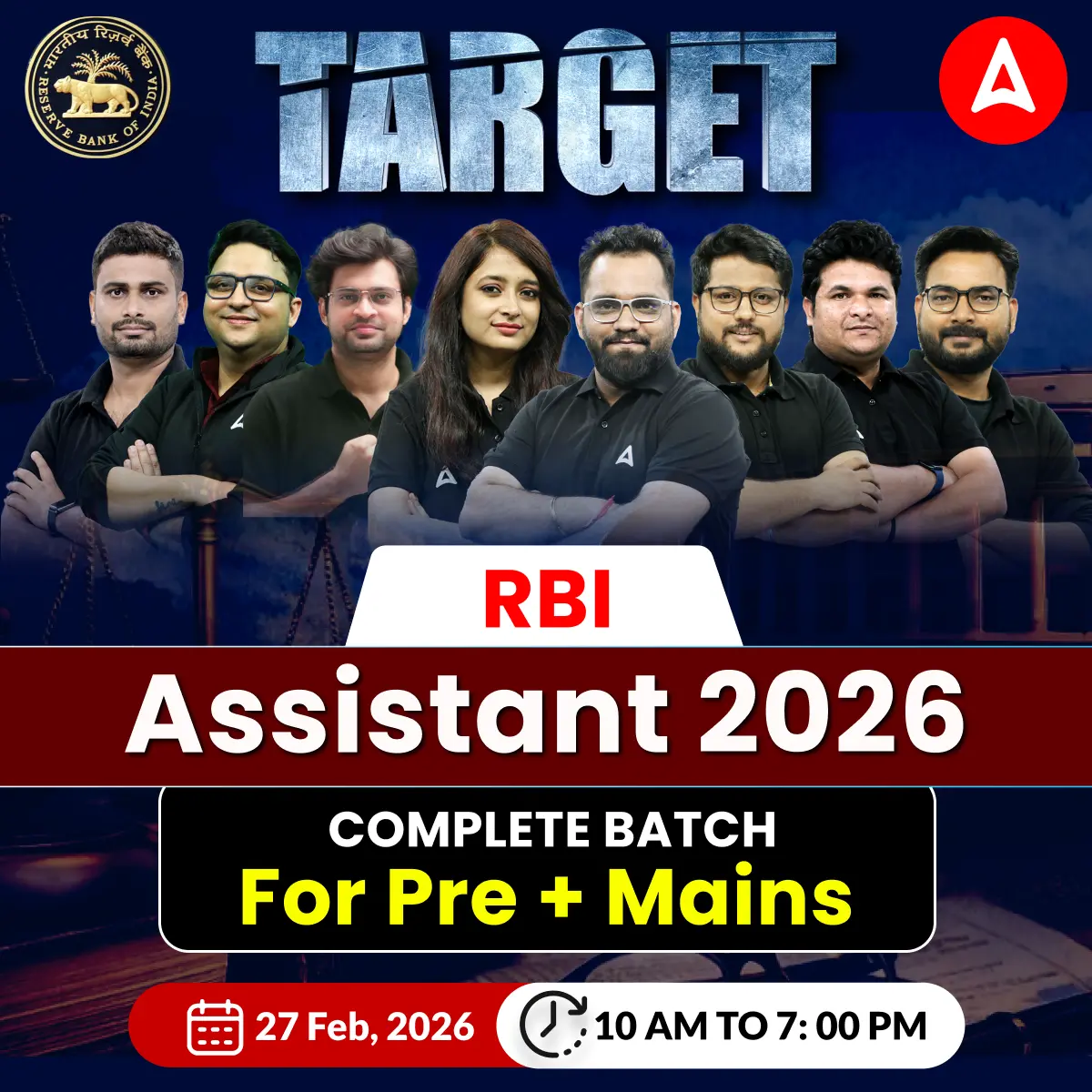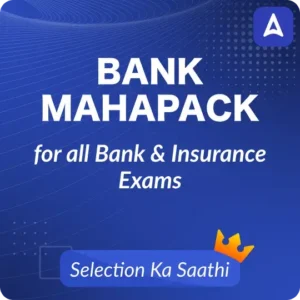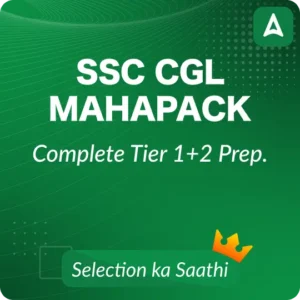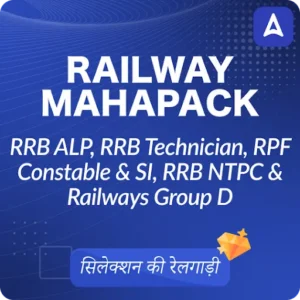Table of Contents
The Staff Selection Commission will conduct the SSC Selection Post Phase 14 Exam 2026 to recruit eligible candidates for various posts. To excel in this exam, candidates should first gain a clear understanding of the SSC Selection Post Phase 14 Syllabus 2026 and the Exam Pattern. The syllabus highlights the key subjects and topics that will be tested in the computer-based exam. A strong grasp of each section, combined with a well-organised study plan, is essential for effective preparation and success.
SSC Selection Post Phase 14 Syllabus 2026
The SSC Selection Post Phase 14 Syllabus has been designed by the Staff Selection Commission to evaluate candidates on the basis of their educational qualifications and job-specific knowledge. The Computer-Based Test (CBT) is divided into four main sections:
- General Knowledge
- Quantitative Aptitude
- General Reasoning
- English Comprehension
Below we have explained all these 4 sections in the chapter and topic-wise in detail. This will help you to escalate your preparation for the SSC Selection Post Phase XIV 2026 in the right direction.
SSC CHSL Selection Post Phase 13 Result 2026 Out- Click to Check
SSC Selection Post Syllabus
The Staff Selection Commission (SSC) conducts the Selection Post recruitment in multiple phases, with the current cycle being Phase XIII. Although the phase number changes each year, the syllabus and exam pattern largely remain the same. Candidates can find a summary of the key details related to the SSC Selection Post syllabus and exam pattern below.
| SSC Selection Post Syllabus 2026 | |
| Organization Name | Staff Selection Commission |
| Position Name | Phase XIII/2026/Selection Posts |
| Job Location | India |
| Total Vacancies | TBA |
| Exam Mode | Computer-based Exam |
| Negative Marking | 0.50 Marks for each wrong answer |
| Total Sections | 4 (General Intelligence, General Awareness, Quantitative Aptitude, and General English) |
| Total Questions | 100 Marks |
| Total Marks | 200 Marks |
| Selection Process | Written Examination (CBT), Skill Test, Document Verification |
| Official Site | www.ssc.gov.in |
SSC Selection Post Selection Process
The SSC Selection Post Phase 14 recruitment process consists of two main stages, with a third stage applicable for posts that require a skill test. Candidates must attend each stage as per the schedule provided by the Staff Selection Commission (SSC). Important details like the exam date, time, and venue will be specified on the individual admit cards. The stages of the recruitment process are as follows:
- Computer-based Exam
- Skill Test (If Required)
- Document Verification
SSC Selection Post Phase 14 Exam Pattern 2026
Candidates are encouraged to go through the SSC Selection Post Phase 14 Exam Pattern 2026 to strengthen their exam preparation. As per the official guidelines, the recruitment includes three separate Computer-Based Tests, each comprising objective multiple-choice questions. The duration of each test is 60 minutes, which is extended to 80 minutes for candidates who are eligible for scribes. There is a negative marking of 0.50 marks for every wrong answer. The subject-wise distribution of questions is outlined in the table below.
| SSC Selection Post Phase 14 Exam Pattern 2026 | |||
| Subject | Number of Questions | Maximum Marks | Time Duration |
| General Intelligence | 25 Questions | 50 Marks | 60 Min |
| General Awareness | 25 Questions | 50 Marks | |
| Quantitative Aptitude (Basic Arithmetic Skill) | 25 Questions | 50 Marks | |
| English Language (Basic Knowledge) | 25 Questions | 50 Marks | |
| Total | 100 Questions | 200 Marks | |
Note: The time Duration will be 80 min for those candidates who are Eligible for Scribes
SSC Selection Post Syllabus 2026 10th (Matric) Level
Before starting their preparation for Phase 14 Matriculation level posts, candidates should carefully go through the detailed syllabus given below. The syllabus includes important subjects such as General Intelligence, General Awareness, Quantitative Aptitude, and English Language.
General Intelligence & Reasoning Syllabus
- Non-verbal type questions.
- Similarities and differences
- Space visualization
- Problem-solving, analysis,
- Judgment, decision making
- Visual memory
- Discriminating observation
- Relationship concepts
- Figure classification
- Arithmetical number series, non-verbal series
General Awareness Syllabus
- Sports
- History and Culture
- Geography
- Economic scene
- General Polity including the Indian Constitution
- Scientific Research
- General awareness of the environment and its application to society.
- Knowledge of current events and such matters of everyday observation and experience in their scientific aspects as may be expected of an educated person.
Syllabus for Quantitative Aptitude Syllabus
- Number Systems
- Decimals and Fractions and Relationship Between Numbers
- Fundamental arithmetical operation
- Computation of Whole Numbers
- Averages
- Interest
- Percentages
- Ratio and Proportion
- Profit and Loss
- Discount
- Mensuration
- Time and Distance
- Ratio and Time
- Time and Work
- Use of Tables and Graphs
English language Syllabus
- Basics of English Language
- Vocabulary
- Grammar
- Synonyms
- Sentence Structure
- Antonyms and its correct usage
SSC Selection Post Syllabus for 12th (Higher Secondary) level
Candidates applying for the 12th-level posts can go through the syllabus provided below. It is important to go through the SSC Phase 14 Syllabus to give you the best in the exam.
General Intelligence & Reasoning Syllabus
- Both verbal and Non-verbal questions
- Semantic Analogy
- Symbolic operations
- Symbolic/Number Analogy
- Trend
- Figural Analogy
- Space orientation
- Semantic classification
- Venn Diagram
- Symbolic/Number Classification
- Drawing inferences
- Figural Classification,
- Semantic Series
- Figural Pattern – folding and completion,
- Number Series
- Embedded figures
- Figural Series,
- Critical Thinking
- Problem Solving,
- Emotional Intelligence,
- Word Building,
- Social Intelligence,
- Coding and Decoding,
General Awareness Syllabus
- General awareness of the environment and its application to society.
- Knowledge of current events and such matters of everyday observation and experience in their scientific aspects as may be expected of an educated person.
- Sports
- History and Culture
- Geography
- Economic scene
- General Polity including the Indian Constitution
- Scientific Research etc
Quantitative Aptitude Syllabus
- Arithmetic
- Number Systems
- Computation of Whole Number
- Decimal and Fractions
- Relationship between numbers Fundamental arithmetical operations
- Percentages
- Ratio and Proportion
- Square roots
- Averages
- Interest (Simple and Compound)
- Profit and Loss
- Discount
- Partnership Business
- Mixture and Allegation
- Time and distance
- Time and work
- Algebra: Basic algebraic identities of School Algebra and Elementary surds (simple problems) and Graphs of Linear Equations.
- Geometry: Familiarity with elementary geometric figures and facts: Triangle and its various kinds of centers, Congruence and similarity of triangles, Circle and its chords, tangents, angles subtended by chords of a circle, common tangents to two or more circles.
- Mensuration: Triangle, Quadrilaterals, Regular Polygons, Circle, Right Prism, Right Circular Cone, Right Circular Cylinder, Sphere, Hemispheres, Rectangular Parallelepiped, Regular Right Pyramid with triangular or square, Base.
- Trigonometry: Trigonometry, Trigonometric ratios, Complementary angles, Height and distances (simple problems only) Standard Identities etc.
- Statistical Charts: Use of Tables and Graphs, Histogram, Frequency polygon, Bar-diagram, Pie-chart.
English Language Syllabus
- Spot the Error
- Fill in the Blanks
- Synonyms/ Homonyms
- Antonyms
- Spellings/ Detecting Mis-spelt words
- Idioms & Phrases
- One-word substitution
- Improvement of Sentences
- Active/ Passive Voice of Verbs
- Conversion into Direct/ Indirect narration
- Shuffling of Sentence parts
- Shuffling of Sentences in a passage
- Cloze Passage Comprehension Passage.
SSC Phase 14 Syllabus for Graduation & above level
The table given below consists of topics like English, General Intelligence, General Awareness, and Quantitative Aptitude. The questions asked for Graduation level posts will be based on Graduation level. Candidates are required to go through each subject and topic with clarity and prepare accordingly.
Quantitative Aptitude Syllabus
- Computation of whole numbers
- Decimals
- Fractions and relationships between numbers
- Percentage
- Ratio & Proportion
- Square roots
- Averages
- Interest
- Profit and Loss
- Discount
- Partnership Business
- Mixture and Allegation
- Time and distance
- Time & Work
- Basic algebraic identities of School Algebra & Elementary surds
- Graphs of Linear Equations
- Triangle and its various kinds of centres
- Congruence and similarity of triangles
- Circle and its chords, tangents
- Angles subtended by chords of a circle
- common tangents to two or more circles
- Triangle, Quadrilaterals, Regular Polygons
- Circle, Right Prism, Right Circular Cone
- Right Circular Cylinder
- Sphere, Hemispheres
- Rectangular Parallelepiped
- Regular Right Pyramid with triangular or square base
- Trigonometric ratio
- Degree and Radian Measures
- Standard Identities
- Complementary angles
- Heights and Distances
- Histogram, Frequency polygon
- Bar diagram & Pie chart.
General Intelligence and Reasoning Syllabus
- Both verbal and non-verbal questions
- Analogies
- Space visualization
- Spatial orientation
- Judgment and decision-making
- Visual memory
- Discrimination and Observation
- Relationship concepts
- Arithmetical reasoning and figural classification
- Arithmetic number series
- Non-verbal series
- Coding and decoding
- Statement conclusion
- Syllogistic reasoning
- Semantic Analogy,
- Symbolic/Number Analogy
- Figural Analogy
- Semantic Classification
- Symbolic/ Number Classification
- Figural Classification,
- Semantic Series
- Number Series
- Figural Series
- Problem-Solving
- Word Building
- Coding & decoding
- Numerical Operations
- Symbolic Operations
- Trends
- Space Orientation and Visualization
- Venn Diagrams
- Drawing inferences
- Punched hole/ pattern –folding & unfolding
- Figural Pattern – folding and completion
- Indexing
- Address matching and Date & city matching
- Classification of centre codes/ roll numbers
- Small & Capital letters/ numbers coding, decoding
- Classification Embedded Figures
- Critical thinking
- Emotional Intelligence
- Social Intelligence and Other subtopics
General Awareness Syllabus
- General awareness of the environment and its application to society.
- knowledge of current events and such matters of everyday observation and experience in their scientific aspects as may be expected of an educated person.
- Sports
- History and Culture
- Geography
- Economic scene
- General Polity including the Indian Constitution
- Scientific Research etc.
English Language Syllabus
The candidate’s proficiency in understanding correct English, along with basic comprehension and writing skills, will be evaluated. The questions in Parts A, B, and D will be set at a level appropriate to the required qualification, i.e., Graduation, while the questions in Part C will correspond to the 10th standard level.
SSC Selection Post Document Verification 2026
Following are the documents that candidates must carry to the verification centre as allotted by the SSC. The candidates must bring these for verification, otherwise, they might get disqualified.
- SSC Selection Post Admit Card and Application form
- Class 10th/12th/Graduation Passing Certificate
- Caste Certificate for SC/ST/OBC/etc.
- PwD/ESM Certificate
- No Objection Certificate (NOC) for Govt Employees
- Any special document required to prove Identity change such as name, DoB, etc.
- Any other document asked by the SSC for the DV round?
Tips to Prepare for SSC Phase 14 Exam
Success in the SSC Selection Post Phase 14 exam requires smart planning and consistent effort. To support your preparation, here are some effective tips to follow. By sticking to a structured study schedule and implementing these strategies, you can enhance your preparation and increase your chances of clearing the exam.
- Familiarize yourself with the SSC Selection Post Phase 14 syllabus. Understand the topics and subjects covered in each section to create a structured study plan.
- Develop a study schedule that allocates time for each subject according to its weightage in the exam. Set realistic study goals and adhere to your study plan consistently.
- Strengthen your foundational knowledge in all subjects. Focus on understanding the basic concepts and principles before moving on to advanced topics.
- Practice solving questions regularly to improve your speed and accuracy. Solve sample papers, mock tests, and previous years’ question papers to familiarize yourself with the exam pattern and question format.
- Practice time management techniques while solving practice papers and mock tests. Allocate specific time slots for each section and strive to complete the paper within the stipulated time frame.
- Allocate time for regular revision of the topics you have covered. Revision helps reinforce your learning and improves retention of important concepts.
| SSC Selection Post Related Links | |
| SSC Selection Post Selection Process | SSC Selection Post Previous Year Papers |
| SSC Selection Post Salary Structure | SSC Selection Post Cut Off |



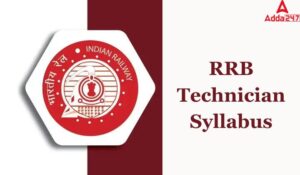 RRB Technician Syllabus 2026 and Exam Pa...
RRB Technician Syllabus 2026 and Exam Pa...
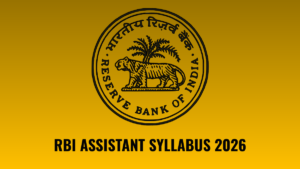 RBI Assistant Syllabus 2026 and For Prel...
RBI Assistant Syllabus 2026 and For Prel...
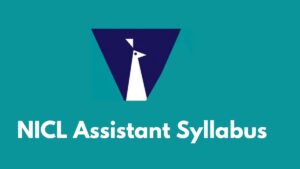 NICL Assistant Syllabus 2026 and Exam Pa...
NICL Assistant Syllabus 2026 and Exam Pa...
